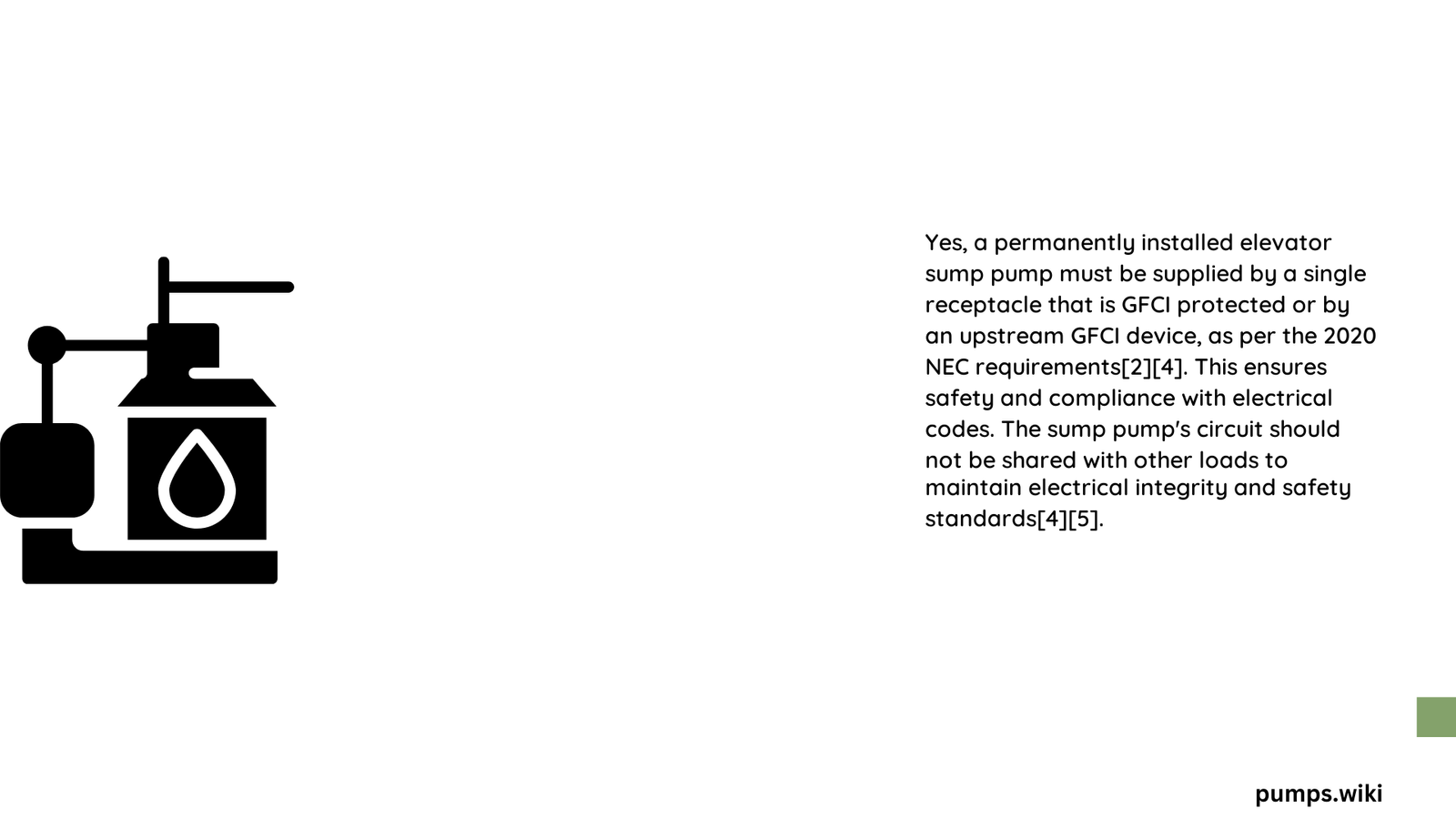Elevator sump pumps demand specialized electrical infrastructure to ensure optimal performance and safety. Understanding the dedicated circuit requirements is crucial for proper installation, preventing electrical failures, and maintaining compliance with national electrical standards. Professionals and building managers must carefully evaluate the specific electrical needs of elevator sump pump systems to guarantee reliable operation and meet stringent safety regulations.
What Are Dedicated Circuits for Elevator Sump Pumps?
A dedicated circuit for an elevator sump pump is an electrical connection exclusively designed to power the pump without sharing load with other electrical devices. This specialized circuit ensures:
- Consistent and uninterrupted power supply
- Protection against electrical overload
- Compliance with National Electrical Code (NEC) standards
Why Do Elevator Sump Pumps Need Dedicated Circuits?
Elevator sump pumps require dedicated circuits due to several critical factors:
- Electrical Load Requirements
- Typical elevator sump pumps draw 5.2-8.5 amps
- Require consistent, uninterrupted power supply
-
Cannot share circuit with other electrical equipment
-
Safety Considerations
- Prevents potential electrical interference
- Reduces risk of circuit overload
- Ensures reliable pump operation during critical drainage scenarios
Electrical Specifications for Elevator Sump Pump Circuits

| Pump Model | Voltage | Amperage | Recommended Circuit | Wire Gauge |
|---|---|---|---|---|
| ELV250 (1/3 HP) | 115-120 VAC | 5.2 amps | 15-amp | 14-gauge |
| ELV280 (1/2 HP) | 115-120 VAC | 8.0-8.5 amps | 20-amp | 12-gauge |
How to Determine Proper Circuit Requirements?
Voltage and Amperage Evaluation
When selecting a dedicated circuit for an elevator sump pump, consider:
- Precise amperage rating of the specific pump model
- Voltage compatibility
- Starting and running amperage differences
- Potential voltage drop over electrical run distance
NEC Compliance Checklist
Ensure your elevator sump pump circuit meets these critical standards:
- GFCI protection mandatory
- Dedicated circuit with no additional load
- Accessible circuit breaker
- Proper wire gauge matching amperage requirements
- Upstream GFCI protection
Professional Installation Recommendations
Circuit Design Best Practices
- Consult a licensed electrician
- Verify local building code requirements
- Use high-quality, code-compliant electrical components
- Implement proper grounding techniques
- Install easily accessible GFCI protection
Potential Installation Challenges
- Additional wiring costs
- Complex electrical infrastructure
- Potential need for panel upgrades
- Strict compliance requirements
Maintenance and Ongoing Electrical Management
Regular electrical system inspections are crucial:
- Annual circuit performance testing
- Verify GFCI functionality
- Check wire integrity
- Monitor pump electrical performance
Cost Considerations
While dedicated circuits increase initial installation expenses, they provide:
– Enhanced safety
– Reduced long-term maintenance costs
– Improved system reliability
– Compliance with electrical standards
Conclusion
Elevator sump pumps universally require dedicated circuits to ensure safe, reliable operation. Proper electrical infrastructure is not optional but a critical safety requirement.
